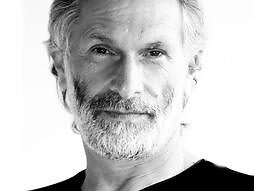"Lecture 1: Sustainability on a resource-limited planet" Jonathan Trent

Date
Location
Description
Seminar by Jonathan Trent, Ph.D.
NASA Ames Research Center, UC. Santa Cruz
Lecture 1: Sustainability on a resource-limited planet
-------------------------------------------------------------------------------------
Date: Tuesday, November 11th, 2014
Time: 14:00 – 15:00
Venue: B250, Center Bldg., Level B
------------------------------------------------------------------------------------
Abstract:
I want to die on Mars, just not on impact. Elon Musk, Founder “Space X”
If JAXA, NASA, or Space X offered you an all-expenses-paid trip to Mars, would you go? Would you go if they offered you a one-way trip?
Current rocket technology can get you to Mars, although to survive the trip will require some breakthroughs in light weight radiation protection. Assuming you get to Mars alive, when you step out onto the surface your feet will sink into powdery red soil and you will behold an endless dry barren landscape. The Mars environment provides no food, no water, and no air to breathe. Without an elaborate spacesuit you will die instantly. The average temperature is minus 60°C and, although the warmest summer day at the equator may reach 20°C, at night it will be minus 70°C. The atmospheric pressure is so low your blood boils at body temperature. The surface radiation will destroy DNA and toxic levels of perchlorate in the soil beneath your feet will poison you if inhaled.
Mars, the ultimate “resource-limited planet” is in stark contrast to the bountiful and hospitable Earth, but it too is a resource-limited planet. These limits are becoming apparent as the human population exceeds 7 billion, affluent lifestyles spread, and the environment changes due to the use of fossil fuels.
Using lessons learned in advanced life-support from space travel and from contemplating Mars exploration, we will discuss strategies for sustainable lifestyles on Earth. I will tell you about a sustainable system called OMEGA that uses sewage, sludge, CO2, solar energy, and plastic tubes to provide energy (biofuels, electricity, and heat), as well as food, and clean water, while improving the environment and promoting a “blue-green” economy.
If you want a preview of OMEGA, please watch my TED Global talk (http://www.ted.com/talks/jonathan_trent_energy_from_floating_algae_pods.html) or see the facebook page "OMEGA Project Earth" https://www.facebook.com/pages/OMEGA-Project-Earth/316730271838680?sk=timeline
Molecular Cryo-Electron Microscopy Unit (Wolf Unit)
Website URL
Attachments
Subscribe to the OIST Calendar: Right-click to download, then open in your calendar application.



